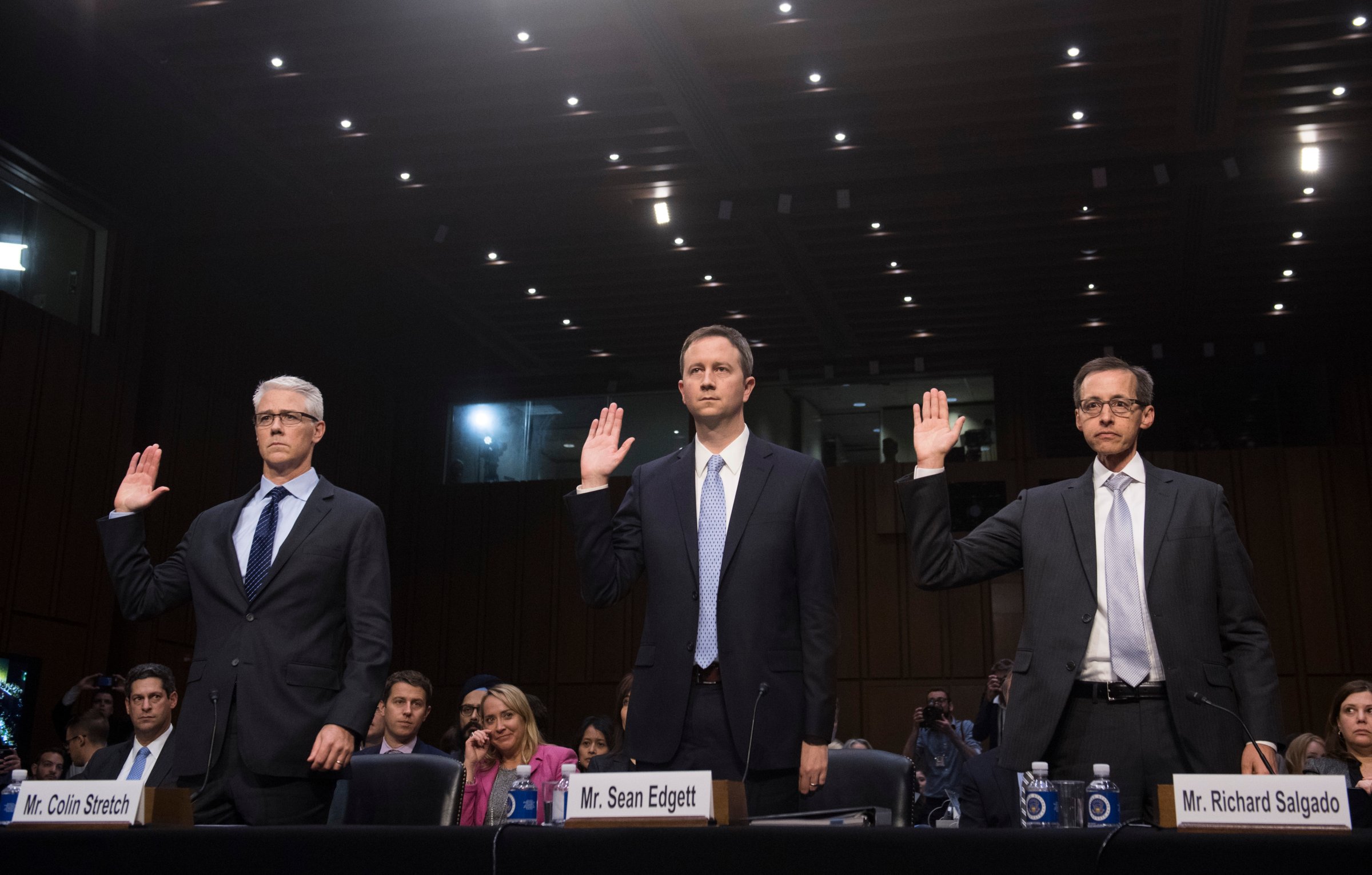
Representatives of Facebook, Google and Twitter told lawmakers that they would revise ad policies after Russian influence operations, but they did not endorse legislation that would standardize transparency rules in online advertising.
Appearing before a Senate subcommittee on crime and terrorism, the three executives seemed contrite as they admitted publicly that foreign actors used their tools to distort conversation and exploit political divides in the months before and after the presidential election last November.
“We saw an effort to sow division and discord in the wake of the election,” said Colin Stretch, general counsel for Facebook. “We saw a lot of activity fomenting discord about the validity of his election.”
Stretch appeared alongside Sean Edgett, acting general counsel for Twitter, and Richard Salgado, Google’s director of law enforcement and information security for the first in two days of hearings on Russia’s use of online media to influence the 2016 presidential election.
Throughout the questioning on Tuesday afternoon, the executives provided a sharper image of how Russian operatives used social media to their political advantage. Russian actors, among them the prominent “troll farm” known as the Internet Research Agency, launched Facebook pages with names like “Black Matters U.S.” and “United Muslims of America,” masquerading as representatives of hot-button political topics. On Twitter, duplicitous accounts targeted Clinton supporters, attempting to convince them they could vote via text message.
“It’s what makes this content so vile, so upsetting, so cynical — its attempt to exploit divisions in our society,” Stretch said apologetically.
The conversation frequently came back to political advertisements on social media, a device of foreign interference in the 2016 election. Facebook has already submitted around 3,000 Russian-linked advertisements to congressional investigators. The executives who appeared before the committee on Tuesday pledged that they had and would continue to revise their advertising policy, but stopped short of pledging their respective companies’ support for legislation that would standardize transparency rules in social media advertising.
“I don’t think it’s enough,” Democratic Sen. Amy Klobuchar of Minnesota, who has backed such a bill, said during the hearing. “We won’t have actual enforcement. I think it’s very important that we have the same rules of the road for candidate ads and issue ads.”
The 12 senators who presided over the committee had little patience for empty answers.
“I think you do enormous good, but your power sometimes scares me,” said Republican Sen. John Kennedy of Louisiana.
More Must-Reads from TIME
- Donald Trump Is TIME's 2024 Person of the Year
- Why We Chose Trump as Person of the Year
- Is Intermittent Fasting Good or Bad for You?
- The 100 Must-Read Books of 2024
- The 20 Best Christmas TV Episodes
- Column: If Optimism Feels Ridiculous Now, Try Hope
- The Future of Climate Action Is Trade Policy
- Merle Bombardieri Is Helping People Make the Baby Decision
Contact us at letters@time.com